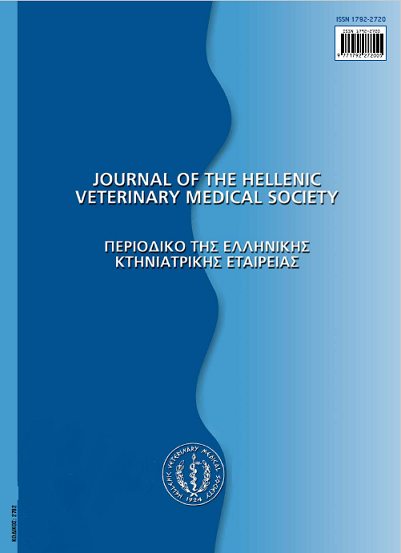Crude glycerol negatively affects rabbit spermatozoa motility in vitro

Abstract
In recent years the conventional diet for farmed animals has been increasingly substituted by alternative energy sources such as crude glycerol. There is an urgent need for investigation of the impact of crude glycerol on the male reproductive tract. Rabbit semen was cultured in a TRIS/NaCl-based medium containing 0% (control), 5%, 10%, 15% and 20% crude glycerol. Sperm kinetic characteristics were assessed immediately and 30 min, 60 min, 120 min and 180 min upon treatment by computer assisted analyzer. In general, a decrease in motility was recorded for the spermatozoa treated with 5% glycerol (P<0.001). A substantial reduction in spermatozoa motility was observed in the samples containing 10% and 15% crude glycerol (P<0.05). The lowest motility was observed for spermatozoa incubated with 20% crude glycerol. Presented data suggest toxic effects of crude glycerol on the rabbit spermatozoa kinetics in vitro.
Article Details
- How to Cite
-
PAAL, D., STREJCEK, F., SLANINA, T., KOVACOVA, R., LUKAC, N., QOJA, A. O., ONDRUSKA, L., FORMICKI, G., TVRDA, E., & MASSANYI, P. (2018). Crude glycerol negatively affects rabbit spermatozoa motility in vitro. Journal of the Hellenic Veterinary Medical Society, 67(4), 223–230. https://doi.org/10.12681/jhvms.15642
- Issue
- Vol. 67 No. 4 (2016)
- Section
- Research Articles

This work is licensed under a Creative Commons Attribution-NonCommercial 4.0 International License.
Authors who publish with this journal agree to the following terms:
· Authors retain copyright and grant the journal right of first publication with the work simultaneously licensed under a Creative Commons Attribution Non-Commercial License that allows others to share the work with an acknowledgement of the work's authorship and initial publication in this journal.
· Authors are able to enter into separate, additional contractual arrangements for the non-exclusive distribution of the journal's published version of the work (e.g. post it to an institutional repository or publish it in a book), with an acknowledgement of its initial publication in this journal.
· Authors are permitted and encouraged to post their work online (preferably in institutional repositories or on their website) prior to and during the submission process, as it can lead to productive exchanges, as well as earlier and greater citation of published work.


